Allergic Rhinitis
The symptoms of allergic rhinitis - commonly called "hay fever"- include sneezing, runny nose, nasal congestion, and itching of nose and throat.The discharge from allergic rhinitis is usually clear and watery. Complications associated with allergic rhinitis include sinus and ear infection, allergic eye symptoms, fatigue, and increased risk for asthma.
If you are allergic to one or more substances, the best treatment is to avoid them. However, it is impossible to completely avoid many substances, such as pollen, dust and, yes, for some, animal danders. Disease state information will be discussed, as well as potential treatments including avoidance measures, medications, and allergy injections (desensitization).
Antihistamines and prescription nasal sprays may be helpful for allergic rhinitis. If they do not bring your symptoms under control, your doctor may suggest allergen immunotherapy (allergy shots) to increase your tolerance to the allergens identified by skin tests.
Immunotherapy
Some patients have already been using various medications, including antihistamines, to attempt to control their allergies without complete relief. The ideal situation would be for the patient to no longerbe allergic. It is possible to develop a natural resistance against materials (e.g. pollens, dust and danders. etc.) to which you are allergic, by using very small amounts of the allergic material and injecting these tiny amounts under the skin (subcutaneous injection). By receiving small injections of the allergens (vaccines), the body can develop from 10 to 100 times additional immunity against the allergens. This enables the patient to be exposed to the unavoidable allergens that are in our environment, such as pollens, danders and dust, without having the severity of reactions that you have had in the past. This should significantly reduce your need for medications since specific symptoms such as itching, sneezing, and congestion are suppressed as well as symptoms of irritability and tiredness. Immunotherapy treatment is a preventative, non-drug therapy. Immunotherapy is one form of treatment that actually gets at the source of the allergic problem rather than treating the symptoms alone. FamilyCare Allergy & Asthma offers two allergy shot programs; Traditional and Rush. Traditional immunotherapy requires 2-3 visits a week to the office for allergy shots during the build up to maintenance, which can take 3-6 months. With rush allergy shots you reach maintenance within two days. This allows patients to see symptom improvement quicker, as well as avoid the need to come in multiple times a week for allergy shots.
Are Allergy Shots Worth it?
Allergy shots (immunotherapy) promise long lasting relief from seasonal sniffles and other symptoms. But they are time-consuming, involving weekly injections for at least three months and monthly maintenance shots for three to five years. Are the shots worth the trouble? Yes, if allergy medicine does not control your symptoms. A January 2007 review from the Cochrane Collaboration, an international research organization, analyzed data from 51 clinical studies involving almost 2,900 patients.
The conclusion: The shots reduced hay-fever symptoms and medication use with a low risk of serious side effects. And the protection can last many years, studies show. Shots might also help prevent the development of new allergies or even asthma.


